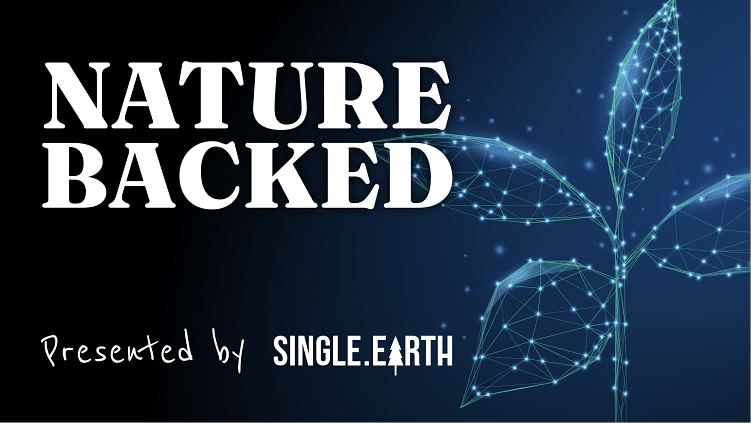
Welcome to the NatureBacked world of Single.Earth! Over the last two weeks, we deep-dived into biology, talking about
🍄 how Fungi are eating construction waste (but also a waste of the cannabis industry), and
🥔 modifying genes of potatoes and tomatoes to boost yields and the resistance of plants towards climate change.
“There is no waste in nature — that’s a manmade construct. And so, looking for solutions in nature to solve these problems is critical to how we battle this climate change,” said Joanne Rodriguez, founder of Mycocycle, Inc.

U.S.-based MycoCycle trains mushrooms to eat construction waste. In the United States alone, 660 million tonnes of construction and demolition waste is added to landfills annually. That’s twice the amount of municipal solid waste.
“I see us as the only ones doing this with the nature-backed solution. We are seeing others work in recycling construction and demolition debris or hard-to-recycle industrial waste streams. That’s usually coming through chemical recycling,” Rodriguez said.
🎙️ Listen to the full episode: Eating Construction Waste with MycoCycle
Rodriguez said MycoCycle fits well for cannabis waste — the fast-growing problem as the sector grows in the United States and elsewhere.
“We even see the opportunity to create a vertical within a MycoCycle that addresses cannabis waste. Remove some of that liability from these growers and then create packaging products right back to their industry,” she said.

Israeli-based ClimateCrop Ltd. edits a gene found in many crops to make potatoes and other crops more resistant to climate change and to grow them faster.
“We have an opportunity to upgrade plants and give them more resilience without a lot of investment in CapEx, which is quite rare when you fight climate. Usually, you fight climate with CapEx,” said Yehuda Borenstein, founder of ClimateCrop.
🎙️ Listen to the full episode: Building Climate Change Resilient Crops with ClimateCrop
This surely raises ethical concerns for many readers and listeners, but Borenstein said the company works outside the GMO sphere. “We are only cutting a certain area in the DNA. So we don’t introduce any foreign DNA,” he said.
Entering the ESG era

Last week I also MC-d Single.Earth’s webinar “Fighting biodiversity loss as part of your company ESG strategy,” where we gave company representatives valuable insight into ESG reporting on both climate and biodiversity.
A replay of the webinar is available here.
ESG has been discussed on the podcast quite a lot, with comments settling mostly around ‘useful.’
Last month, Tim Hade, who builds distributed energy production sites as COO and co-founder of Scale Microgrids, stressed the role of ESG in his clients’ decision-making in the United States: “The rise of ESG is a very, very real thing. I can tell you anecdotally, over the last five years, the driver of corporate decision-making and sustainability’s role has really changed.”
🎙️ Listen to the full episode: Fixing Electricity Production with Scale Microgrid’s Tim Hade
Nina Gunell from Helsinki-headquartered VC firm OpenOcean said in August 2022:
“It’s like a common joint effort that we need to do. And to be able to make that joint effort, we need to have some ways of measuring it. And we need to have benchmarks per industry. /…/
I understand where the negative speaking about ESG comes from, but I think it’s a necessary step. And in five or ten years, we will be at a very different stage in the discussion than we are today.”
🎙️ Listen to the full episode: Scooters and Carbon Accounting Win Major Share of Climate Investments, Say OpenOcean
Next
Last week, the moment of truth also literally arrived for the carbon offset industry after a media investigation by Guardian, Die Zeit, and Source Material proved a massive hole in the current carbon credit system.
We will touch upon the spillover from this in some of the upcoming episodes, where we will talk about green investing and possible platforms available for it.
From February, we’ll be focusing on a cross-over of the environment and web3 world as we ramp up for Tallinn web3 week in early May.


